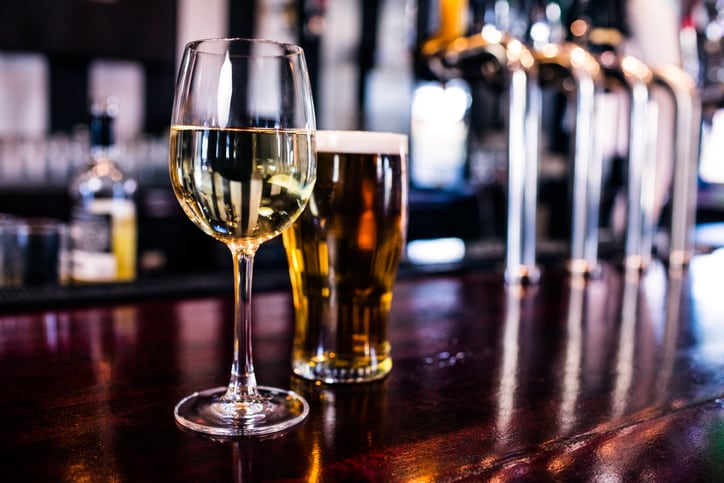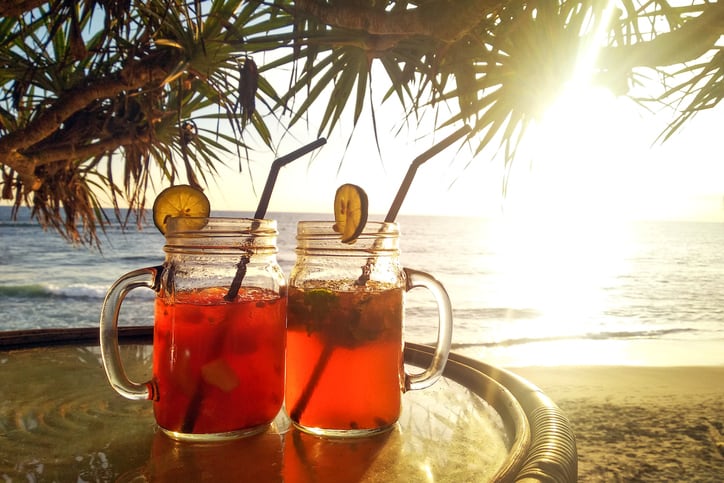The labels – which are now muted for 2028 – would have contained a warning to inform people of the link between alcohol and cancer. Producers would also have been obliged to provide calorie information.
Initially signed into law in 2023 with a view to becoming compulsory in 2026, the labels have been delayed for two key reasons.
The competitiveness of Irish beverages in international trade markets has always been cited by industry as a problem with the policy: but now US tariffs have made this more pertinent.
Secondly, such regulations could be better suited to EU level to maintain an even and consistent market across the EU Single Market.
Drinks Ireland, which represents the alcohol drinks sector, has welcomed the announcement, highlighting the difficulties the Irish drinks sector has faced this year.
The US represents the most important export market: with products such as Irish whiskey particularly affected by tariffs and ongoing trade uncertainty.
On top of that, new labeling legislation would have increased packaging and labeling costs by some 35%, says the association.
“This decision provides much-needed relief for these companies, both small and large, allowing our exporters to focus their resources and efforts on market diversification and, ultimately, the survival of their businesses,” said the association.
While the regulations would only have applied to the domestic Irish market and not affect exports directly, drinks producers would still have had to bear the same costs for making the changes to their domestic portfolio, points out the organization, driving up costs in exactly the same way.
Irish drinks are currently subject to a 10% tariff on impots to the US. However, the threat of tariff increases remains a real one for drinks producers, leading to uncertainty.
Cancer risk of alcohol
The WHO says there's an 'urgent need for mandatory, standardized labeling on alcoholic beverages'
It says that public awareness of the link between alcohol and cancer remains 'alarmingly low'
Per capita alcohol consumption in the European Union is twice the world average, with one in 19 adults dying form alcohol-attributable causes, and three out of every 10 alcohol-attributable deaths due to cancers, according to the WHO.
Meanwhile, The Comité Européen des Entreprises Vins (CEEV), also welcomes the postponement. Like Drinks Ireland, it calls for clear and harmonized labeling rules in an ‘increasingly uncertain global trade environment.’
“Something was wrong with the Irish measure from the beginning, it raised serious doubts regarding its justification, its proportionality, and its compatibility with EU legislation,” said Ignacio Sánchez Recarte, Secretary General of CEEV. “This pause shall be more than just a delay, it is a much-needed chance to rethink how we ensure consumers are well-informed, while also safeguarding the legal and economic coherence of the European market.”
But Alcohol Action Ireland says it is disappointed by the delay.
“The delay, which comes against the backdrop ofintense oppositionto labeling from the alcohol industry, will not be without consequences in a country where liver disease rates have steadily increased over the past 20 years.
“Around 1,000 alcohol-related cancers are diagnosed every year and Ireland has the third highest level of Foetal Alcohol Spectrum Disorder (FASD) in the world, affecting up to 7.4% of the population."
To say that this delay is a blow for public health in Ireland is an understatement. It is a failure of leadership and of democracy.
Labels are crucial to efforts to reduce incidences of cancer, liver disease and FASD in Ireland and indeed to change the conversation about this product which is heavily marketed as risk-free and essential to everyday living.
Dr Sheila Gilheany, Alcohol Action Ireland
Ireland’s health warnings were set to be a world-leading measure, as organizations such as the WHO and national governments seek increasingly to mount legislation in this space.
In the US in January, the then-Surgeon General called for cancer warnings on alcohol, as well as suggesting revised limits.
And this month, the UK government announced it will explore a health labeling policy for alcohol as part of its 10 year plan for England.



